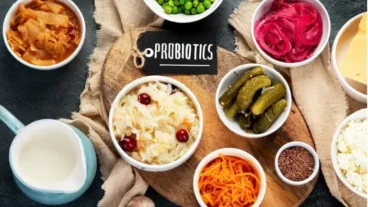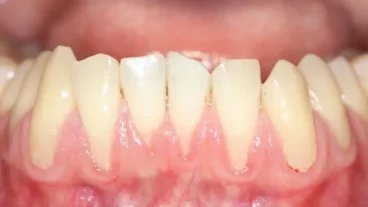Os 8 melhores remédios para combater a prisão de ventre


Revisado e aprovado por a médica Mariel Mendoza
Consideramos que uma pessoa sofre de prisão de ventre quando tem problemas para evacuar, seja pelas fezes duras e poucas ou por não conseguir ir ao banheiro por um tempo prolongado que supere 72 horas.
Contudo, cada pessoa tem uma frequência diferente para ir ao banheiro devido a idade, peso e tipo de dieta.
Assim, se houver uma mudança brusca nessa rotina, é preciso ficar alerta.
Ainda que muitas pessoas possam pensar que esse é um problema de saúde leve, a verdade é que a prisão de ventre deve ser tratada de maneira rápida a fim de evitar que se torne um problema crônico.
Na maioria dos casos, a prisão de ventre se deve à desidratação, à má alimentação e a um estilo de vida sedentário.
No entanto, também pode ser sintoma de problemas de saúde mais sérios que requerem atenção médica.
Uma das primeiras medidas das pessoas que têm prisão de ventre é tomar algum tipo de laxante comercial.
Entretanto, isso não é recomendado, pois o organismo pode ficar dependente. Além disso, pode causar outros problemas secundários.
Felizmente, existem alguns remédios naturais que têm propriedades laxantes para melhorar a digestão e combater a prisão de ventre. tomam Veja, a seguir.
8 remédios para combater a prisão de ventre
1. Suco de aloe vera
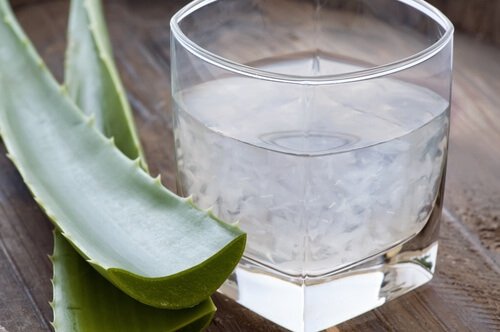
A aloe vera ou babosa é uma das plantas medicinais que traz muitos benefícios para a saúde, tanto externa quanto internamente.
Tomar todos os dias seu suco contribui para limpar, de maneira natural, o cólon e facilita a eliminação dos dejetos.
Segundo dados da Natural Standard, um composto da aloe vera chamada aloína é a responsável por combater a prisão de ventre.
Leia também: As 5 melhores frutas para depurar o cólon
2. Maçã
Um dos melhores alimentos para combater a prisão de ventre é a maçã.
Isso porque esta fruta contém pectina, uma substância que promove o funcionamento intestinal.
Além disso, a maçã fornece ao nosso corpo uma quantidade significativa de fibras, de acordo com dados de uma pesquisa realizada pela Faculdade de Medicina da Universidade Estadual de Ohio (Estados Unidos da América).
As fibras são necessárias para amolecer as fezes e estimular sua eliminação.
3. Banana
A banana é ideal para ajudar na boa digestão e melhorar o movimento do intestino.
Visto que é um alimento com uma boa quantidade de fibras, que agem como um poderoso laxante natural, ajuda o organismo a expulsar das fezes.
Uma unidade fornece, aproximadamente, 12% da quantidade diária recomendada de fibras.
Além disso, a banana também contém fruto-oligossacarídeos, substância que, ao chegar no intestino grosso, contribui para uma boa digestão.
4. Chá verde
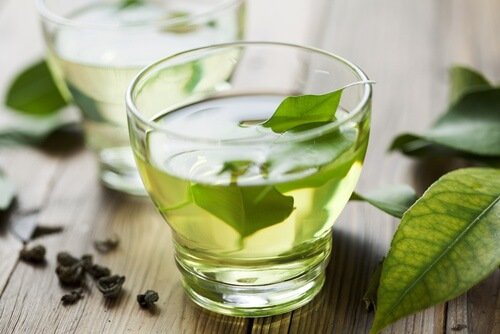
O chá verde ficou muito popular nos últimos anos como uma poderosa bebida antioxidante com muitos benefícios para a saúde.
Um desses principais benefícios é sua capacidade de promover a boa digestão e estimular a eliminação de dejetos que se acumulam no cólon.
Este chá tem um leve efeito laxante. Dessa forma, contribui para combater a prisão de ventre.
5. Aveia
Sem dúvida, pessoas que sofrem com a prisão de ventre deveriam incluir mais aveia em sua dieta.
Este alimento contém carboidratos, vitaminas, minerais e fibras. Estes elementos ajudam a ter uma melhor digestão e evitar a prisão de ventre.
O ideal é consumir aveia no café da manhã. Mas ela também pode ser adicionada e consumida em vitaminas, sopas e saladas.
6. Linhaça
As sementes de linhaça são caracterizadas por seu alto poder medicinal que é atribuído, em grande parte, pelo seu alto teor de fibras e ácidos graxos ômega 3.
De fato, este alimento tem propriedades laxantes suaves que podem ajudar a melhorar o movimento intestinal, evitando a retenção de fezes e promovendo a limpeza do cólon.
Basta colocar uma colher de semente de linhaça em um copo com água e deixar repousar durante a noite. Pela manhã, beba em jejum.
7. Azeite de oliva e limão
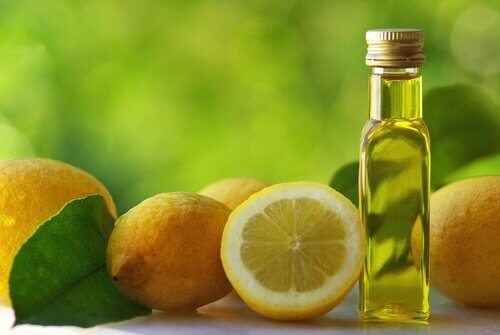
Ao combinar azeite de oliva e limão em um só remédio, conseguimos um laxante natural para ajudar a melhorar o trânsito intestinal e combater a prisão de ventre.
Basta diluir o suco de um limão em meio copo de água quente e adicionar uma colher de azeite de oliva. Beba todas as manhãs em jejum.
8. Vinagre de maçã e mel de abelhas
Outra boa combinação para fazer um laxante natural consiste em diluir uma colher de sobremesa de vinagre de maçã e uma colher de sobremesa de mel em um copo de água.
Misture bem e beba três vezes ao dia.
Todas as fontes citadas foram minuciosamente revisadas por nossa equipe para garantir sua qualidade, confiabilidade, atualidade e validade. A bibliografia deste artigo foi considerada confiável e precisa academicamente ou cientificamente.
- Van der Schoot, A., Drysdale, C., Whelan, D., Dimidi, E. (2022). The Effect of Fiber Supplementation on Chronic Constipation in Adults: An Updated Systematic Review and Meta-Analysis of Randomized Controlled Trials. The American Journal of Clinical Nutrition, 116(4), 953–969. https://www.ncbi.nlm.nih.gov/pmc/articles/PMC9535527/
- Diaz S, Bittar K, Mendez MD. (2023). Constipation. StatPearls Publishing. Consultado el 7 de junio de 2023. https://www.ncbi.nlm.nih.gov/books/NBK513291/
- National Institute of Diabetes and Digestive and Kidney Diseases. (2022). Eating, diet, & nutrition for constipation. NIDDK. Consultado el 7 de junio de 2023. https://www.niddk.nih.gov/health-information/digestive-diseases/constipation/eating-diet-nutrition
-
Gao, R., Tao, Y., Zhou, C., Li, J., Wang, X., Chen, L., Li, F., & Guo, L. (2019). Exercise therapy in patients with constipation: a systematic review and meta-analysis of randomized controlled trials. Scandinavian Journal of Gastroenterology, 54(2), 169–177. https://pubmed.ncbi.nlm.nih.gov/30843436/
-
He, Y., Zhu, L., Chen, J., Tang, X., Pan, M., Yuan, W., & Wang, H. (2022). Efficacy of Probiotic Compounds in Relieving Constipation and Their Colonization in Gut Microbiota. Molecules (Basel, Switzerland), 27(3), 666. https://www.ncbi.nlm.nih.gov/pmc/articles/PMC8838973/
-
Hong, S. W., Chun, J., Park, S., Lee, H. J., Im, J. P., & Kim, J. S. (2018). Aloe vera Is Effective and Safe in Short-term Treatment of Irritable Bowel Syndrome: A Systematic Review and Meta-analysis. Journal of Neurogastroenterology and Motility, 24(4), 528–535. https://www.ncbi.nlm.nih.gov/pmc/articles/PMC6175553/
- Horton, J. (2023). The daily grind: Why coffee makes you poop. Cleveland Clinic. Consultado el 7 de junio de 2023. https://health.clevelandclinic.org/why-does-coffee-make-you-poop/
- Hsieh, S.-K., Xu, J.-R., Lin, N.-H., Li, Y.-C., Chen, G.-H., Kuo, P.-C., Chen, W.-Y., & Tzen, J. T. C. (2016). Antibacterial and laxative activities of strictinin isolated from Pu’er tea ( Camellia sinensis ). Journal of Food and Drug Analysis, 24(4), 722–729. https://www.sciencedirect.com/science/article/pii/S102194981630059X
- Iriondo-DeHond, A., Uranga, J. A., Del Castillo, M. D., & Abalo, R. (2020). Effects of Coffee and Its Components on the Gastrointestinal Tract and the Brain-Gut Axis. Nutrients, 13(1), 88. https://www.ncbi.nlm.nih.gov/pmc/articles/PMC7824117/
- Jani, B., & Marsicano, E. (2018). Constipation: Evaluation and Management. Missouri Medicine, 115(3), 236–240. https://www.ncbi.nlm.nih.gov/pmc/articles/PMC6140151/
-
Khedmat, H., Karbasi, A., Amini, M., Aghaei, A., & Taheri, S. (2013). Aloe vera in treatment of refractory irritable bowel syndrome: Trial on Iranian patients. Journal of Research in Medical Sciences: The Official Journal of Isfahan University of Medical Sciences, 18(8), 732. https://www.ncbi.nlm.nih.gov/pmc/articles/PMC3872617/
- Koyama, T., Nagata, N., Nishiura, K., Miura, N., Kawai, T., & Yamamoto, H. (2022). Prune Juice Containing Sorbitol, Pectin, and Polyphenol Ameliorates Subjective Complaints and Hard Feces While Normalizing Stool in Chronic Constipation: A Randomized Placebo-Controlled Trial. The American Journal of Gastroenterology, 117(10), 1714–1717. https://pubmed.ncbi.nlm.nih.gov/29398337
- Lee, Y. Y., Erdogan, A., & Rao, S. S. (2014). How to assess regional and whole gut transit time with wireless motility capsule. Journal of Neurogastroenterology and Motility, 20(2), 265–270. https://www.ncbi.nlm.nih.gov/pmc/articles/PMC4015195/
- Lever, E., Cole, J., Scott, S. M., Emery, P. W., & Whelan, K. (2014). Systematic review: the effect of prunes on gastrointestinal function. Alimentary Pharmacology & Therapeutics, 40(7), 750–758. https://pubmed.ncbi.nlm.nih.gov/25109788/
- Lever, E., Scott, S. M., Louis, P., Emery, P. W., & Whelan, K. (2019). The effect of prunes on stool output, gut transit time and gastrointestinal microbiota: A randomised controlled trial. Clinical Nutrition (Edinburgh, Scotland), 38(1), 165–173. https://pubmed.ncbi.nlm.nih.gov/29398337/
- Cleveland Clinic. (2023) Methylcellulose powder for suspension. Recuperado el 7 de junio de 2023. https://my.clevelandclinic.org/health/drugs/19361-methylcellulose-powder-for-suspension
- Nehlig A. (2022). Effects of Coffee on the Gastro-Intestinal Tract: A Narrative Review and Literature Update. Nutrients, 14(2), 399. https://www.ncbi.nlm.nih.gov/pmc/articles/PMC8778943/
-
Pérez-Burillo, S., Navajas-Porras, B., López-Maldonado, A., Hinojosa-Nogueira, D., Pastoriza, S., & Rufián-Henares, J. Á. (2021). Green Tea and Its Relation to Human Gut Microbiome. Molecules (Basel, Switzerland), 26(13), 3907. https://www.ncbi.nlm.nih.gov/pmc/articles/PMC8271705/
-
Picon, P. D., Picon, R. V., Costa, A. F., Sander, G. B., Amaral, K. M., Aboy, A. L., & Henriques, A. T. (2010). Randomized clinical trial of a phytotherapic compound containing Pimpinella anisum, Foeniculum vulgare, Sambucus nigra, and Cassia augustifolia for chronic constipation. BMC Complementary and Alternative Medicine, 10, 17. https://www.ncbi.nlm.nih.gov/pmc/articles/PMC2874511
-
Surh I, Dunnick JK, Brix AE. (2012). NTP Genetically Modified Model Report on the Toxicology Study of Senna (CASRN 8013-11-4) in C57BL/6NTac Mice and Toxicology and Carcinogenesis Study of Senna in Genetically Modified C3B6.129F1/Tac-Trp53tm1Brd N12 Haploinsufficient Mice (Feed Studies): NTP GMM 15. Research Triangle Park (NC): National Toxicology Program. https://www.ncbi.nlm.nih.gov/books/NBK576229/
-
Vrdoljak, J., Kumric, M., Vilovic, M., Martinovic, D., Tomic, I. J., Krnic, M., Ticinovic Kurir, T., & Bozic, J. (2022). Effects of Olive Oil and Its Components on Intestinal Inflammation and Inflammatory Bowel Disease. Nutrients, 14(4), 757. https://www.ncbi.nlm.nih.gov/pmc/articles/PMC8875923/
- Yang, J., Wang, H. P., Zhou, L., & Xu, C. F. (2012). Effect of dietary fiber on constipation: a meta analysis. World Journal of Gastroenterology, 18(48), 7378–7383. https://www.ncbi.nlm.nih.gov/pmc/articles/PMC3544045/
- Kang, S. J., Cho, Y. S., Lee, T. H., Kim, S.-E., Ryu, H. S., Kim, J.-W., Park, S.-Y., Lee, Y. J., Shin, J. E., & Constipation Research Group of the Korean Society of Neurogastroenterology and Motility. (2021). Medical management of constipation in elderly patients: Systematic review. Journal of Neurogastroenterology and Motility, 27(4), 495–512. https://pubmed.ncbi.nlm.nih.gov/34642269/
- Boilesen, S. N., Tahan, S., Dias, F. C., Melli, L. C. F. L., & de Morais, M. B. (2017). Water and fluid intake in the prevention and treatment of functional constipation in children and adolescents: is there evidence? Jornal de Pediatria, 93(4), 320–327. https://pubmed.ncbi.nlm.nih.gov/28450053/
- Popkin, B. M., D’Anci, K. E., & Rosenberg, I. H. (2010). Water, hydration, and health. Nutrition Reviews, 68(8), 439–458. https://www.ncbi.nlm.nih.gov/pmc/articles/PMC2908954/
- Fulghum, D. (2022). How Drinking Fluids Can Help You Manage Constipation. WebMD. Consultado el 7 de junio de 2023. https://www.webmd.com/digestive-disorders/water-a-fluid-way-to-manage-constipation
- Morishita, D., Tomita, T., Mori, S., Kimura, T., Oshima, T., Fukui, H., & Miwa, H. (2021). Senna versus magnesium oxide for the treatment of chronic constipation: A randomized, placebo-controlled trial: A randomized, placebo-controlled trial. The American Journal of Gastroenterology, 116(1), 152–161. https://pubmed.ncbi.nlm.nih.gov/32969946/
- Shen, X., Gong, L., Li, R., Huang, N., Zhang, H., Chen, S., … & Sun, R. (2024). Treatment of constipation with Aloe and its compatibility prescriptions. Chinese Herbal Medicines. https://www.sciencedirect.com/science/article/pii/S1674638424000741
Este texto é fornecido apenas para fins informativos e não substitui a consulta com um profissional. Em caso de dúvida, consulte o seu especialista.





